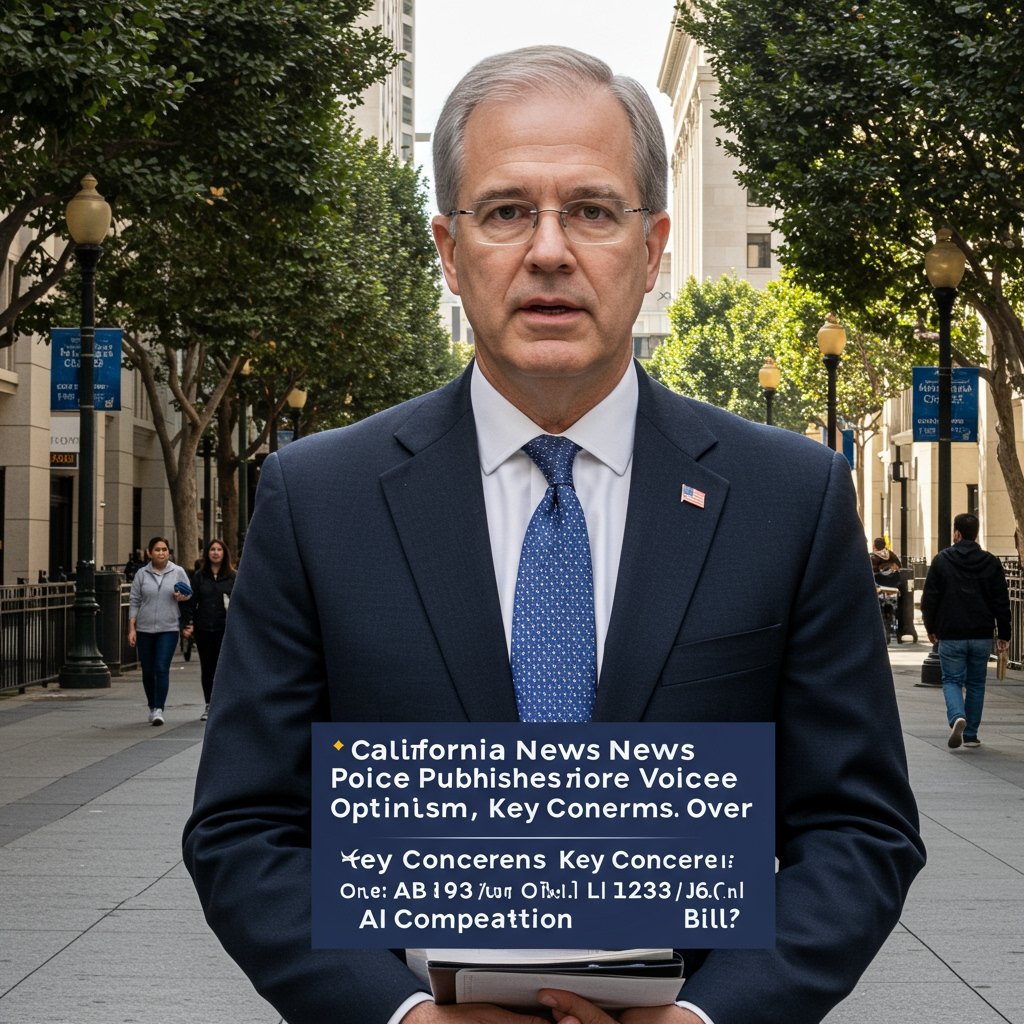California News Publishers Offer Mixed Reactions to Proposed AI News Compensation Bill
Sacramento, CA – Leading California news publishers, including prominent representatives from the California News Publishers Association (CNPA) and major newspaper groups across the state, issued formal statements today regarding Assembly Bill 123. This proposed legislation, currently navigating legislative committees in Sacramento, aims to establish a framework requiring artificial intelligence (AI) companies to compensate news outlets for the use of their content in training data and generating responses.
The introduction of AB 123 comes amidst a rapidly evolving digital landscape where AI models are increasingly relying on vast datasets, much of which includes copyrighted news content. Publishers argue that the unauthorized use of their professionally produced journalism by AI platforms undermines their business models and devalues the significant investment required to produce credible news.
While there was a general consensus acknowledging the fundamental necessity for fair compensation in this new digital age, the reactions from the publishing community were notably diverse, highlighting a spectrum of perspectives on the specifics of AB 123.
Acknowledging the Need for Compensation
Representatives from the CNPA and various major newspaper groups emphasized their support for the bill’s core principle: that news publishers should be compensated when their valuable content is utilized by AI technologies for commercial gain. They underscored that journalistic content is not merely raw data but the product of significant financial investment, labor, and risk. Allowing AI companies to freely use this content without recompense was likened by some to the digital equivalent of taking copyrighted material without permission.
This acknowledgment reflects a broader industry-wide push for tech companies to recognize and pay for the value derived from journalistic work. Publishers are seeking sustainable models that allow them to continue providing essential news coverage to communities.
Significant Concerns Regarding Implementation
Despite the shared belief in the need for compensation, significant concerns were raised regarding the practical implementation of payout structures as outlined or potentially implied within AB 123. Many publishers expressed uncertainty about how usage would be tracked accurately across diverse AI models and applications. The complexity of identifying exactly which pieces of content contributed to which AI outputs or training datasets presents a formidable technical challenge.
Furthermore, questions arose about the fairness and transparency of the proposed compensation mechanisms. Publishers are seeking clarity on how compensation amounts would be determined under the bill’s framework. Without a clear, equitable, and easily auditable system for tracking usage and calculating payments, there is apprehension that the process could become bureaucratic, contentious, and ultimately ineffective.
Potential Impact on Smaller Newsrooms
A particularly acute concern highlighted by some publishers, especially those representing smaller, independent newsrooms, is the potential disparate impact of the bill. There is fear that the administrative burden and legal complexities associated with tracking AI usage and negotiating compensation could disproportionately affect smaller outlets with limited resources.
Larger media organizations may have the legal and technical infrastructure to navigate a complex compensation system, but smaller community newspapers and digital-native startups might struggle. Publishers voiced worries that instead of providing a much-needed revenue stream, the bill could inadvertently create new compliance costs or disadvantages for these vital local news providers, potentially widening the gap between large and small publishers.
Calls for Transparency and Dialogue
Throughout the statements, a strong emphasis was placed on the critical need for transparency. Publishers are calling for transparency in how AI models are trained, specifically regarding the datasets used and the inclusion of news content. They also demand transparency in how compensation amounts would be determined and allocated, ensuring a fair and understandable process for all parties involved.
This push for transparency is coupled with calls for further dialogue. Industry leaders are advocating for continued discussions with legislators, AI companies, and other stakeholders to refine AB 123. They believe that potential amendments are necessary to address the practical challenges identified and to ensure the bill achieves its intended goal of supporting, rather than hindering, the news industry.
The Road Ahead for AB 123
The diverse reactions underscore the ongoing complexities inherent in negotiating the rapidly evolving relationship between AI technology and the news industry, particularly on the West Coast, a global hub for both technology and media. While the principle of compensation resonates positively, the practicalities of implementation, the potential impact on different sized newsrooms, and the need for clear, transparent processes remain significant hurdles.
As AB 123 progresses through legislative committees in Sacramento, publishers are keen to engage constructively to shape the final legislation into a framework that is both fair to news creators and workable in practice. The outcome of this legislative effort in California is being closely watched nationwide, as it could set a precedent for how AI’s use of news content is regulated and compensated in the future. The industry’s message is clear: while supportive of the aim, the devil is in the details, and careful consideration is needed to ensure the bill effectively supports a sustainable future for journalism.



















